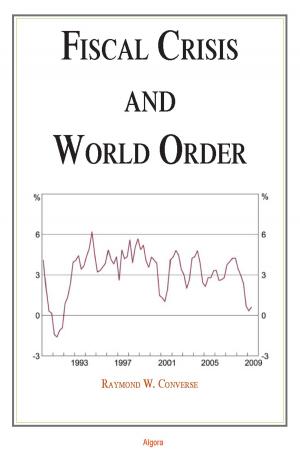Crimes of Punishment
America's Culture of Violence
Nonfiction, Social & Cultural Studies, Social Science| Author: | Theodore L. Dorpat | ISBN: | 9780875865652 |
| Publisher: | Algora Publishing | Publication: | December 15, 2009 |
| Imprint: | Algora Publishing | Language: | English |
| Author: | Theodore L. Dorpat |
| ISBN: | 9780875865652 |
| Publisher: | Algora Publishing |
| Publication: | December 15, 2009 |
| Imprint: | Algora Publishing |
| Language: | English |
This groundbreaking book by an award-winning psychoanalyst and forensic psychiatrist presents a comprehensive exploration of a timely but often taboo topic: the failure of punishment to deter crime and violence, an issue that affects us both individually and as a culture.
Written at the culmination of the authors fifty-year career as a psychoanalyst, forensic psychologist and scholar, this wide-ranging work identifies the origins of violence and investigates the surprising consequences of punishment from a multitude of perspectives. In his treatment of the topic, Dr. Dorpat utilizes scientific research; ethical reasoning, and his vast clinical experience and insight. He also suggests the benefits of new and emerging humane alternatives to the revenge/punishment model currently entrenched in our society, such as restorative justice. In contrast to most contemporary measures, these new approacheswhile still imprisoning dangerous individualseffectively stress reparation and forms of sanctioning other than incarceration. When restitution replaces revenge, everyone benefits.
Crimes of Punishment examines four key, interrelated social methods of punishment. These are (1) the corporal punishment of children, (2) the incarceration of adults in prisons, (3) capital punishmentthe death penalty, and (4) emotional (verbal) abuse. As he elucidates and analyzes each of these forms of punishment, Dr. Dorpat clearly and logically makes the case that punishment is not only ineffectual but that it also engenders more of what it ostensibly aims to stop: violence and misbehavior. Both children and adults who are subjected to punishment tend to become more violent individuals.
In covering the full scope of our contemporary justice system Dr. Dorpat brings to the forefront those who are often overlooked or dismissed: the victims of crime. His concluding chapters present and clarify the psychological wounds and needs of these individuals, and demonstrate how restorative justice is effective in attending to victims in an ethical and healing manner. In a humane and ethically evolved society restitution replaces punishment.
Offering insights gained from his many decades of work as a psychoanalyst and forensic psychologist, the he presents a compelling picture of the detrimental effects of punishment, as well as a look at the new possibilities for restorative justice now being explored in Britain and Australia. Informed by scholarship, compassion, and a desire to confront injustice, this important work opens new ground for reconsidering our contemporary justice system.
This groundbreaking book by an award-winning psychoanalyst and forensic psychiatrist presents a comprehensive exploration of a timely but often taboo topic: the failure of punishment to deter crime and violence, an issue that affects us both individually and as a culture.
Written at the culmination of the authors fifty-year career as a psychoanalyst, forensic psychologist and scholar, this wide-ranging work identifies the origins of violence and investigates the surprising consequences of punishment from a multitude of perspectives. In his treatment of the topic, Dr. Dorpat utilizes scientific research; ethical reasoning, and his vast clinical experience and insight. He also suggests the benefits of new and emerging humane alternatives to the revenge/punishment model currently entrenched in our society, such as restorative justice. In contrast to most contemporary measures, these new approacheswhile still imprisoning dangerous individualseffectively stress reparation and forms of sanctioning other than incarceration. When restitution replaces revenge, everyone benefits.
Crimes of Punishment examines four key, interrelated social methods of punishment. These are (1) the corporal punishment of children, (2) the incarceration of adults in prisons, (3) capital punishmentthe death penalty, and (4) emotional (verbal) abuse. As he elucidates and analyzes each of these forms of punishment, Dr. Dorpat clearly and logically makes the case that punishment is not only ineffectual but that it also engenders more of what it ostensibly aims to stop: violence and misbehavior. Both children and adults who are subjected to punishment tend to become more violent individuals.
In covering the full scope of our contemporary justice system Dr. Dorpat brings to the forefront those who are often overlooked or dismissed: the victims of crime. His concluding chapters present and clarify the psychological wounds and needs of these individuals, and demonstrate how restorative justice is effective in attending to victims in an ethical and healing manner. In a humane and ethically evolved society restitution replaces punishment.
Offering insights gained from his many decades of work as a psychoanalyst and forensic psychologist, the he presents a compelling picture of the detrimental effects of punishment, as well as a look at the new possibilities for restorative justice now being explored in Britain and Australia. Informed by scholarship, compassion, and a desire to confront injustice, this important work opens new ground for reconsidering our contemporary justice system.















